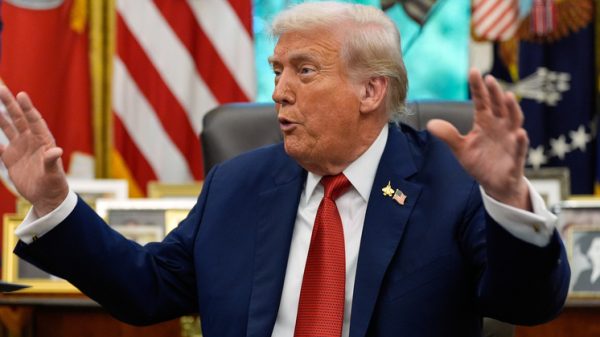 City's peerless dominance on the pitch is matched by their financial and commercial dominance in the Premier League. Photo: Getty Images/Justin Setterfield < p>Manchester City's view of themselves as anti-establishment may be the most ludicrous delusion in sport. Here is a club that has won 12 of the last 21 trophies in English football, including six domestic titles in seven years, all while sitting at the top of an Abu Dhabi-funded global conglomerate that boasts two Champions League teams in next season. If this is what outsider status looks like, you'll shudder to imagine their idea of the elite.
City's peerless dominance on the pitch is matched by their financial and commercial dominance in the Premier League. Photo: Getty Images/Justin Setterfield < p>Manchester City's view of themselves as anti-establishment may be the most ludicrous delusion in sport. Here is a club that has won 12 of the last 21 trophies in English football, including six domestic titles in seven years, all while sitting at the top of an Abu Dhabi-funded global conglomerate that boasts two Champions League teams in next season. If this is what outsider status looks like, you'll shudder to imagine their idea of the elite.
Yet a persecution complex permeates every aspect of their court case next week against the Premier League, from their claim that they are victims of “discrimination” to their silent portrayal of the “tyranny of the majority”. This second formulation has rarely had much currency since the 19th century, when there was still concern about the majority imposing its will on a disadvantaged minority through the democratic process. Exactly where the disadvantage lies for City, the first club in England to spend more than £400 million on annual wages, is anyone's guess.
It is City's time-honored habit of taking refuge in the role of victim when the controls on their finances are at their most brutal. We saw this last year when, in the same week that the Premier League charged City with 115 counts of alleged financial impropriety (all of which they vehemently deny), Pep Guardiola complained that he had «by far the smallest team in the league.» . This was the same Guardiola whose playing-day team value was in excess of £1 billion and who could afford to leave World Cup winner Julián Álvarez on the bench.
But even now, with wealth so great that a £100m player like Jack Grealish may be surplus to requirements, City insist their wings are being clipped. Opposed to the idea that their sponsorship deals should be independently assessed, they want their oil money to flow freely. The merits of their case seem shaky, given that they signed the rules governing these deals in the first place. The timing is also far from favorable for their public image: With them fighting 115 charges (many of them sponsorship-related) set to go to trial in November, this latest legal battle smacks of a pre-emptive strike.
However, the «us against the world» rhetoric resonates frighteningly among fans. “City are going to destroy the entire Premier League cartel,” shouted a group of Real Talk MCFC fans. “We have just declared war on the football elite. This battle will decide the future of football: either it will be monopolized by the big traditional clubs, or their monopoly will be broken and subject to fair competition from other clubs.» Of course, this idiotic statement was soon supported by Liam Gallagher.
«Fair competition»? The concept is conspicuous by its absence even now, given City's recourse to an unlimited sovereign wealth fund and the ability to use other clubs owned by their parent company as incubators. But if they had gotten their way this time, successfully arguing that they were being held back by anti-competition rules, there would hardly be any competition at all. City will have no restrictions on finding the best talent and no oversight over their impressive commercial partnerships. Their only obvious goal, after a period of already unprecedented dominance, is to establish a monopoly for one of them.
None of this helps City's popularity outside the Etihad. Blating about being unfairly held back when you've just won your fourth championship in a row is rarely the sweetest maneuver. Indeed, more than half of the other 19 Premier League clubs are reportedly willing to provide testimony and documentary evidence to support the league's defense. Ultimately, the main principle is that at least 14 clubs, or a two-thirds majority, must agree to any rule changes. The system was never intended to allow anyone, regardless of money or rights, to act independently.
Charts showing how Abu Dhabi boosted Manchester City's revenue. More detailsIt's all flaxseed water for guerrilla marketing campaigns. As soon as the phrase «tyranny of the majority» became known, Domino's Pizza posted a photo of one of its empty cardboard boxes with the caption: «Sympathy for Man City.» On the face of it, the club's achievements should not be in doubt: Pep Guardiola is building the most ruthlessly effective team the English game has ever seen. But the machine-like quality of the enterprise, coupled with the inexplicable elements of how exactly City's dominance was achieved, makes them look aloof. Jurgen Klopp once despaired that Liverpool could not compete with City in the financial stakes. It's a reality that City now seem obsessively trying to formalize.
I'd like to believe that the story of their phenomenal rise is not just about money. But sometimes they don't make it easy. On the same day that City's war with the Premier League entered its next phase, Kevin De Bruyne, perhaps their most revered player, batted his eyelashes at Saudi Arabia, saying: «If I play there for two years, I can make an incredible amount of money.» While it was good to hear the footballer honestly express his motivation for moving to Saudi Arabia for the first time, you couldn't help but wonder if the £400,000-a-week Belgian, England's highest-paid player, was just a little greedy. However, the same can be said about City, for which too much is never enough.






















































Свежие комментарии